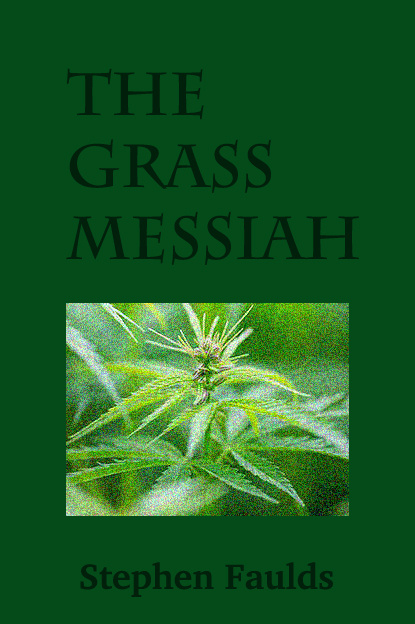
Remember the Sixties?
What did the 1960's mean to you? Some people say if you remember the Sixties you weren't really there. That is obviously an exaggeration but being out of it was part of the experience.
The Love Generation, Make Love Not War, Tune in Turn on Drop Out.
The Beatles, Bob Dylan, Albert Hoffman, Timothy Leary, Maharishi Mahesh Yogi.
There are many Sixties stories. Most of them involve drugs and rock 'n' roll. Many of them go on to the theme of raising consciousness, seeking Enlightenment and the Wisdom of the East. The Hippies took drugs and went to India. What happened to them? What happened to the search for Truth? Some people say it was lost in the hedonism of the Seventies and the materialism of the Eighties.
The Grass Messiah is the story of how the idealism and the utopianism evolved into something else. The true quest for higher consciousness in the world that evolved from the Sixties. The real world.
The Grass Messiah is a story of one individual's struggle to make sense of the era in which he grew up and to find a way to live without sacrificing the higher values he discovered through drugs and the ancient philosophy of India.
SAMPLE
The Seventies ended at midnight when 1980 began. Ten years came to an end like any other decade. But this decade was different. It produced a flowering of art music clothing lifestyle and poster art philosophy that evolved into an orgasm of everything the Sixties imagined and a fertile bed of aphorisms from which the new commercialism of the Eighties grew. The economic imperative took up the cue and everything that was marketable in the Hippy vocabulary became the vernacular of the hip market. Green and Alternative and Self Actualisation became the catchwords of commerce and before long the Hippies were lying around stoned and irrelevant watching their dreams become television commercials and their values become clichés.
Like all stories, the story of Brian Buffle has a beginning. But that is not where I will begin. A beginning can only make sense when the ending is known and since this story does not yet have an ending its beginning is not the place to begin. Though I am not the story I will begin with myself.
My name is Wayne Bookman.
I was a shy nervous child, fearful of the dark of bogey men of spiders of thunder and most of all of God. My father was a travelling pastor to mining towns and sheep stations. My mother died when I was twelve. I was twenty years old when I realised it wasn’t my fault. God didn’t kill her to punish me. She died of pleurisy while my father was away ministering to his flock. She should have gone to hospital earlier but she stayed at home trying to take care of me until a neighbour found her breathless from coughing and called a doctor. After she died, I was cared for by a spinster named Miss Dodd. I was allowed to travel with my father during school holidays.
That year was the first really bad year of my life. It was the year I lost faith. Of course, I was only a child and didn’t realise I had lost faith. It took me another eight years to articulate the loss and turn it into a conscious rejection of everything I had been taught, the values with which I had been raised the doctrine into which I had been educated.
My mother died and left me alone in the Sunday School of my mind, fearful of the emptiness tearful at the silence, listening to sermons with a grim determination to disbelieve. Her disappearance from my life proved the non-existence of God. My loneliness called God’s bluff and He failed to respond.
My part in Brian Buffle’s life was not by choice, at least not mine. Our lives intersected at three different points, each point more significant than the last - childhood youth and adulthood.
I lived in a mining town, the son of a pastor raised in the shadow of religion. Brian Buffle lived on a sheep station, son of a Grazier where life was his teacher and his religion. He was self-confident and gregarious. I was shy and inarticulate. We had nothing in common except the accident of each other in our lives.
Who am I? Why am I here in this story about a modern Prophet? And by Prophet I don't mean someone who predicts the future wars pestilence second comings but one who sees what others can become and shows them his vision. In that sense Brian Buffle was indeed a prophet. Why was an insecure religion-troubled God-deserted scribbler of words given the opportunity to speak for a truth teller on the frontier of consciousness?
How did I, after losing my mother my faith and my self-confidence manage to be chosen as the Scribe of the Grass Messiah? How did I emerge from a troubled childhood and adolescence, struggling to become an adult and find myself at the forefront of a spiritual quest, a community of like-minded beings? Where did I, afraid of the dark the Devil the unknown, find the courage to become the confidante of a spiritual leader?
ISBN 9781005447038
amazon https://tinyurl.com/yxgklbwl